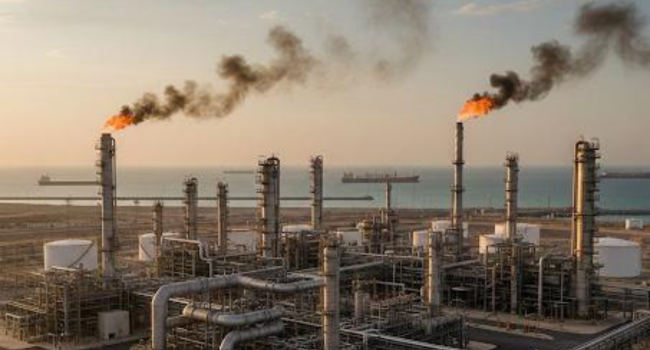Serbia’s sole oil refinery, which supplies the vast majority of the country’s fuel but is now under US sanctions because of its majority Russian ownership, could cease operations as early as Tuesday, according to officials.
Since last month, the Petroleum Industry of Serbia (NIS) has been hit with sanctions as part of Washington’s crackdown on Russia’s energy sector after the 2022 invasion of Ukraine.
The long-delayed sanctions, first flagged in January under former President Joe Biden, were enforced starting on October 9 — leaving Belgrade scrambling to find a solution to a looming energy crisis.
Serbia’s energy minister, Dubravka Djedovic Handanovic, said late last month that “the Pancevo oil refinery will continue operating without disruption until November 25”.
Since then, the Serbian government has said it stocked up its fuel reserves in preparation for the shutdown and contracted new import volumes for December.
But experts warn imports alone will not be enough to save NIS. “Production covered around 80 percent of everything, and imports were about 20 percent,” Belgrade-based economist Goran Radosavljevic told AFP.
He stressed that replacing such a large slice of the market with imports would be difficult.
“You can prolong the agony for a few months through additional imports, but NIS will go bankrupt if it can no longer operate,” he added.
READ ALSO: EU Says Will Push US To Lower Steel Tariffs
Negotiations
With Russians holding a controlling stake, Serbian officials have had to hope their counterparts in Moscow were willing to sell.
Serbian officials say talks are ongoing, and President Aleksandar Vucic said there are three possible buyers for NIS, without revealing their identities.
Last week, NIS filed a new request with the US for a temporary exemption from the sanctions while negotiations were underway — but there has been no movement from Washington yet.
Serbia sold a 51 percent stake in NIS to Gazprom and Gazprom Neft in 2008 for 400 million euros (US$462 million), as part of a broader deal — including the construction of energy infrastructure, which was only partially realised.
The Serbian state holds nearly 30 percent of NIS, with minority shareholders owning the rest.
The Russians entered the talks with almost 45 percent of NIS held by Gazprom Neft, separately holding an 11.3 percent stake through its St Petersburg-based–based sister company, Intelligence.
Serbian officials have repeatedly warned that a solution for NIS must be found, increasingly raising the possibility of a state takeover if no other option emerges.
But for Vucic, with close ties to Moscow, the option of seizing a Russian asset is particularly unpalatable. He has so far rejected the idea, instead offering to buy the stake at above market rates if negotiations fell through.
Serbia, also heavily reliant on cheap Russian gas, remains among the few European countries not to impose sanctions on Moscow over the war in Ukraine.
Parallel talks on gas supplies are also underway, as Russia has been offering only short-term contracts in recent months — a tactic Vucic has said was aimed at dissuading Serbia from seizing NIS.
AFP
